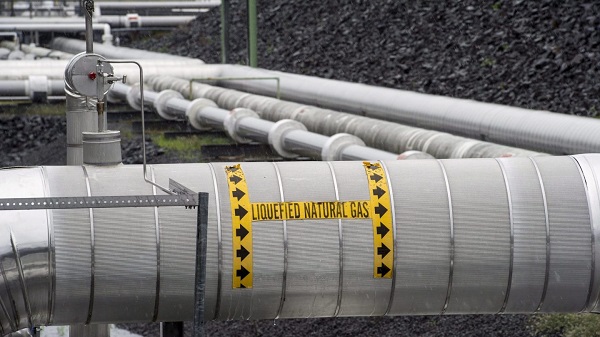Economy
Scrap the second carbon tax: Taxpayers Federation

Author: Franco Terrazzano
The Canadian Taxpayers Federation is calling on the federal government to scrap its second carbon tax following the release of government documents showing it will cost the Canadian economy $9 billion by 2030.
“This is another government report that shows carbon taxes are a big drag on the economy that Canadians can’t afford,” said Franco Terrazzano, CTF Federal Director. “The second carbon tax alone will cost average families hundreds and even thousands of dollars.”
The second carbon tax is embedded within federal fuel regulations, which took effect July 1, 2023.
The regulations require producers to reduce the carbon content of their fuels. If they can’t meet the requirements, they must purchase credits, increasing costs that are passed onto Canadians purchasing gasoline or diesel.
According to government documents, in 2030, the second carbon tax “will result in an overall GDP decrease of up to $9 billion.”
The documents were tabled by Environment and Climate Change Canada in the House of Commons in response to an order paper question filed by Conservative MP John Barlow (Foothills).
Previous analysis from Environment and Climate Change Canada shows the first carbon tax (including industrial) will cost the Canadian economy $30 billion by 2030.
The Parliamentary Budget Officer estimated the second carbon tax will cost the average household between $384 and $1,157 in 2030 depending on the province.
“Canada’s own emissions are not large enough to materially impact climate change,” according to the PBO report.
The PBO also estimated the second carbon tax will increase the price of gasoline by up to 17 cents per litre and the price of diesel up to 16 cents per litre by 2030.
“Prime Minister Justin Trudeau can make life more affordable and help our economy by scrapping his carbon taxes,” Terrazzano said.
Economy
The Net-Zero Dream Is Unravelling And The Consequences Are Global

From the Frontier Centre for Public Policy
The grand net-zero vision is fading as financial giants withdraw from global climate alliances
In recent years, governments and Financial institutions worldwide have committed to the goal of “net zero”—cutting greenhouse gas emissions to as close to zero as possible by 2050. One of the most prominent initiatives, the Glasgow Financial Alliance for Net Zero (GFANZ), sought to mobilize trillions of dollars by shifting investment away from fossil fuels and toward green energy projects.
The idea was simple in principle: make climate action a core part of financial decision-making worldwide.
The vision of a net-zero future, once championed as an inevitable path to global prosperity and environmental sustainability, is faltering. What began as an ambitious effort to embed climate goals into the flow of international capital is now encountering hard economic and political realities.
By redefining financial risk to include climate considerations, GFANZ aimed to steer financial institutions toward supporting a large-scale energy transition.
Banks and investors were encouraged to treat climate-related risks—such as the future decline of fossil fuels—as central to their financial strategies.
But the practical challenges of this approach have become increasingly clear.
Many of the green energy projects promoted under the net-zero banner have proven financially precarious without substantial government subsidies. Wind and solar technologies often rely on public funding and incentives to stay competitive. Energy storage and infrastructure upgrades, critical to supporting renewable energy, have also required massive financial support from taxpayers.
At the same time, institutions that initially embraced net-zero commitments are now facing soaring compliance costs, legal uncertainties and growing political resistance, particularly in major economies.
Major banks such as JPMorgan Chase, Citigroup and Goldman Sachs have withdrawn from GFANZ, citing concerns over operational risks and conflicting fuduciary duties. Their departure marks a signifcant blow to the alliance and signals a broader reassessment of climate finance strategies.
For many institutions, the initial hope that governments and markets would align smoothly around net-zero targets has given way to concerns over financial instability and competitive disadvantage. But that optimism has faded.
What once appeared to be a globally co-ordinated movement is fracturing. The early momentum behind net-zero policies was fuelled by optimism that government incentives and public support would ease the transition. But as energy prices climb and affordability concerns grow, public opinion has become noticeably more cautious.
Consumers facing higher heating bills and fuel costs are beginning to question the personal price of aggressive climate action.
Voters are increasingly asking whether these policies are delivering tangible benefits to their daily lives. They see rising costs in transportation, food production and home energy use and are wondering whether the promised green transition is worth the economic strain.
This moment of reckoning offers a crucial lesson: while environmental goals remain important, they must be pursued in balance with economic realities and the need for reliable energy supplies. A durable transition requires market-based solutions, technological innovation and policies that respect the complex needs of modern economies.
Climate progress will not succeed if it comes at the expense of basic affordability and economic stability.
Rather than abandoning climate objectives altogether, many countries and industries are recalibrating, moving away from rigid frameworks in favour of more pragmatic, adaptable strategies. Flexibility is becoming essential as governments seek to maintain public support while still advancing long term environmental goals.
The unwinding of GFANZ underscores the risks of over-centralized approaches to climate policy. Ambitious global visions must be grounded in reality, or they risk becoming liabilities rather than solutions. Co-ordinated international action remains important, but it must leave room for local realities and diverse economic circumstances.
As the world adjusts course, Canada and other energy-producing nations face a clear choice: continue down an economically restrictive path or embrace a balanced strategy that safeguards both prosperity and environmental stewardship. For countries like Canada, where natural resources remain a cornerstone of the economy, the stakes could not be higher.
The collapse of the net-zero consensus is not an end to climate action, but it is a wake-up call. The future will belong to those who learn from this moment and pursue practical, sustainable paths forward. A balanced approach that integrates environmental responsibility with economic pragmatism offers the best hope for lasting progress.
Marco Navarro-Genie is the vice president of research at the Frontier Centre for Public Policy. With Barry Cooper, he is coauthor of Canada’s COVID: The Story of a Pandemic Moral Panic (2023).
Alberta
CPP another example of Albertans’ outsized contribution to Canada

From the Fraser Institute
By Tegan Hill
Amid the economic uncertainty fuelled by Trump’s trade war, its perhaps more important than ever to understand Alberta’s crucial role in the federation and its outsized contribution to programs such as the Canada Pension Plan (CPP).
From 1981 to 2022, Albertan’s net contribution to the CPP—meaning the amount Albertans paid into the program over and above what retirees in Alberta received in CPP payments—was $53.6 billion. In 2022 (the latest year of available data), Albertans’ net contribution to the CPP was $3.0 billion.
During that same period (1981 to 2022), British Columbia was the only other province where residents paid more into the CPP than retirees received in benefits—and Alberta’s contribution was six times greater than B.C.’s contribution. Put differently, residents in seven out of the nine provinces that participate in the CPP (Quebec has its own plan) receive more back in benefits than they contribute to the program.
Albertans pay an outsized contribution to federal and national programs, including the CPP because of the province’s relatively high rates of employment, higher average incomes and younger population (i.e. more workers pay into the CPP and less retirees take from it).
Put simply, Albertan workers have been helping fund the retirement of Canadians from coast to coast for decades, and without Alberta, the CPP would look much different.
How different?
If Alberta withdrew from the CPP and established its own standalone provincial pension plan, Alberta workers would receive the same retirement benefits but at a lower cost (i.e. lower CPP contribution rate deducted from our paycheques) than other Canadians, while the contribution rate—essentially the CPP tax rate—to fund the program would likely need to increase for the rest of the country to maintain the same benefits.
And given current demographic projections, immigration patterns and Alberta’s long history of leading the provinces in economic growth, Albertan workers will likely continue to pay more into the CPP than Albertan retirees get back from it.
Therefore, considering Alberta’s crucial role in national programs, the next federal government—whoever that may be—should undo and prevent policies that negatively impact the province and Albertans ability to contribute to Canada. Think of Bill C-69 (which imposes complex, uncertain and onerous review requirements on major energy projects), Bill C-48 (which bans large oil tankers off B.C.’s northern coast and limits access to Asian markets), an arbitrary cap on oil and gas emissions, numerous other “net-zero” targets, and so on.
Canada faces serious economic challenges, including a trade war with the United States. In times like this, it’s important to remember Alberta’s crucial role in the federation and the outsized contributions of Alberta workers to the wellbeing of Canadians across the country.
-

 Daily Caller2 days ago
Daily Caller2 days agoDOJ Releases Dossier Of Deported Maryland Man’s Alleged MS-13 Gang Ties
-

 Daily Caller2 days ago
Daily Caller2 days agoTrump Executive Orders ensure ‘Beautiful Clean’ Affordable Coal will continue to bolster US energy grid
-

 COVID-191 day ago
COVID-191 day agoChris Barber asks Court to stay proceedings against him
-

 2025 Federal Election2 days ago
2025 Federal Election2 days agoBREAKING from THE BUREAU: Pro-Beijing Group That Pushed Erin O’Toole’s Exit Warns Chinese Canadians to “Vote Carefully”
-

 Energy2 days ago
Energy2 days agoStraits of Mackinac Tunnel for Line 5 Pipeline to get “accelerated review”: US Army Corps of Engineers
-

 Canadian Energy Centre1 day ago
Canadian Energy Centre1 day agoFirst Nations in Manitoba pushing for LNG exports from Hudson’s Bay
-

 2025 Federal Election2 days ago
2025 Federal Election2 days agoAllegations of ethical misconduct by the Prime Minister and Government of Canada during the current federal election campaign
-

 John Stossel2 days ago
John Stossel2 days agoClimate Change Myths Part 1: Polar Bears, Arctic Ice, and Food Shortages





